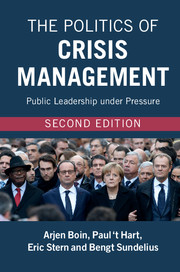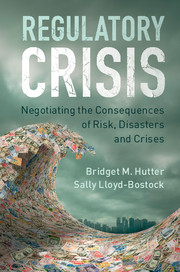The Politics of Crisis Management
Crisis management has become a defining feature of contemporary governance. In times of crisis, communities and members of organizations expect their leaders to minimize the impact, while critics and bureaucratic competitors make use of social media to blame incumbent rulers and their policies. In this extreme environment, policymakers must somehow establish a sense of normality, and foster collective learning from the crisis experience. In the new edition of this uniquely comprehensive analysis, the authors examine how strategic leaders deal with the challenges they face, the political risks and opportunities they encounter, the pitfalls they must avoid, and the paths towards reform they may pursue. The book is grounded in decades of collaborative, cross-national and multidisciplinary case study research and has been updated to include new insights and examples from the last decade. This is an original and important contribution from experts in public policy and international security.
- Features thoroughly updated coverage of the literature, taking in the most important new insights on and relevant to crisis leadership emerging from research conducted in the ten years since the publication of the first edition
- Ageing case examples have been replaced with new, more recent ones, covering some of the biggest emergencies/crises that have occurred over the last decade
- Focuses on the public sector, politics and government
Product details
January 2017Hardback
9781107118461
210 pages
235 × 156 × 15 mm
0.41kg
3 b/w illus. 2 tables
Available
Table of Contents
- Introduction
- 1. Managing crises: five strategic leadership tasks
- 2. Sense making: grasping crises as they unfold
- 3. Decision making and coordinating: shaping the crisis response
- 4. Meaning making: constructing a crisis narrative
- 5. To end a crisis: managing accountability
- 6. Learning and changing: from the crisis to reform
- 7. How to deal with crisis: lessons for prudent leadership.










